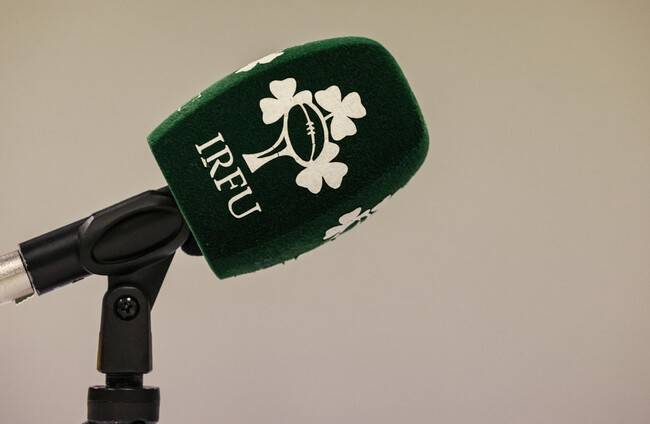THE IRISH Rugby Football Union (IRFU) has announced transgender women over the age of 12 will not be permitted to participate in contact female rugby.
The association have argued that its decision to limit involvement to players recorded as female at birth is “based on medical and scientific evidence and in line with World Rugby guidance”.
The amendment of the IRFU’s gender participation policy for rugby applies for the forthcoming season and will impact two players currently registered, with the association explaining that they have spoken directly to the individuals in question, adding that “options to remain active in the game, such as non-contact playing formats (tag/touch rugby), refereeing, coaching, and volunteering, underlining that the IRFU values their on-going involvement in the game”.
It continues a trend of similar policies across the sport — in 2020, World Rugby banned trans women from the elite women’s game, citing injury risks.
In addition, last month the Rugby Football Union (RFU) voted to ban transgender women from the women’s rugby union in England.
However, as it stands in the male category in Ireland, players whose sex is recorded at birth as female have been permitted to play “if they provide written consent and a risk assessment is carried out”.
Part of the IRFU statement reads: “The IRFU is keenly aware that this is a sensitive and challenging area for those involved and the wider LGBT+ community and will continue to work with those impacted, providing support to ensure their ongoing involvement with the game.
“Recent peer-reviewed research provides evidence that there are physical differences between those people whose sex was assigned as male and those as female at birth, and advantages in strength, stamina and physique brought about by male puberty are significant and retained even after testosterone suppression.”
Anne Marie Hughes, Spirit of Rugby Manager, who has worked on policy development in this area since 2014, added: “We continue to stand with the LGBT+ community, and while we accept that today some may feel disappointed in this decision, we want to again underline to them – there is a place for everyone in rugby, and we can all work together.”
Responding to this development, Trans Equality Together condemned the IRFU’s decision, describing it as “damaging”.
Moninne Griffith, CEO of Belong To and Co-Director of Trans Equality Together, said: “This reactionary ban directly affects a very small number of trans players in Ireland, but it will have deep-reaching negative consequences across society. It is openly sending a message to trans people, their families and allies that they are not welcome in the rugby community. It is also setting a dangerous precedent for other Irish sporting organisations to follow their lead in banning trans players. We note the IRFU’s values include respect, integrity, and inclusivity – this decision flies in the face of these values.”
Paula Fagan, CEO of LGBT Ireland and Co-Director of Trans Equality Together: “We are urging the IRFU to reconsider their decision. The IRFU has an opportunity to be leaders in the space of diversity, inclusion and equality, and we would welcome an opportunity to discuss this further with the IRFU.”
You can read the World Rugby Transgender Guideline here and further information about Trans Equality Together is available here.

